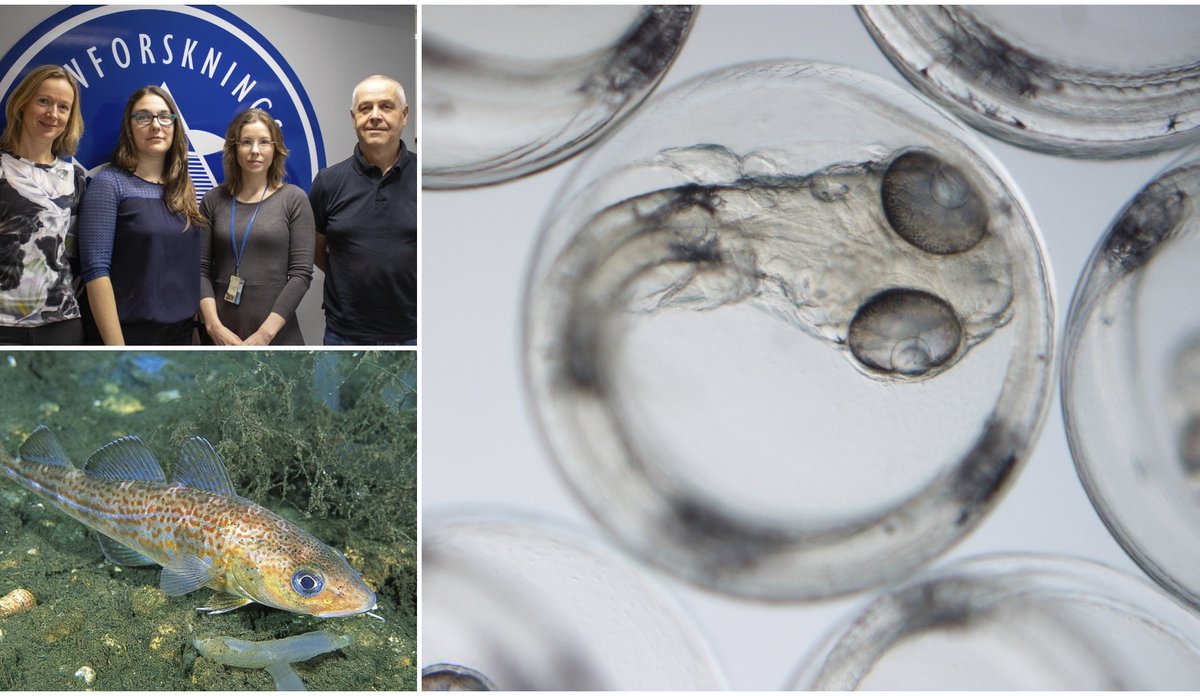Cod can adjust to climate change - from one generation to the next

IMR scientists Kaja Skjærven, Maud Alix, Lene Kleppe and Olav Kjesbu.
Photo: Alix/Skjærven/Svensen/IMRPublished: 18.03.2024
"We have investigated how fish can adapt to climate change, from one generation to the next," says researcher Kaja Skjærven at the Institute of Marine Research (IMR).
Because when the climate changes and the ocean become warmer, will the fish also adapt to the new environment? The scientists from IMR have come a little closer to an answer.
"The programming" of the offspring changes
In a new study, it emerges that something seems to change from mother to offspring when the temperature of the ocean rises. And the warmer it gets, the greater the changes.
But what changes? Well, we're talking about the instructions between the mother fish and what eventually becomes the offspring. The mother fish uses its genes to control the development of tissues, organs, and growth in offspring through these important instructions. A kind of "programming," if you will.
The instructions are called mRNA or "messenger RNA" in scientific terms.
To find out if the "messages" change when the climate changes, the researchers had to test it out in practice.
Examined both mother fish and eggs
In large, green tanks, cod swam around at different temperatures. Some lived in normal seawater temperatures of six degrees, while others were in tanks that held either 9 or 12 degrees - significantly warmer.
The researchers followed the fish both before and during spawning in the tanks before they were euthanized. Then the researchers could examine roe and liver in the mother fish, but also the mRNA from the mother in the fish eggs.
"We found that the instructions changed along with the temperature, depending on the dose. The biggest changes were seen in the warmest tank," explains Skjærven.
"Another finding is that the temperature the mother fish experienced several months before spawning influenced these instructions in the embryos.
The environment of the mother is crucial for the offspring's development
"Our results suggest that the environment the adult fish lives in is crucial for the genetic instructions that govern how the offspring will develop. If the environment changes, so do the instructions," says IMR researcher Olav Kjesbu, who led the project.
"So, the 'programming' seems to be quite flexible, to adapt the offspring to the environment it will live in. It may indicate that cod has an inherent ability to adapt to changes in the environment from one generation to the next. But that probably only applies if the temperature doesn't get too high.”
Reference